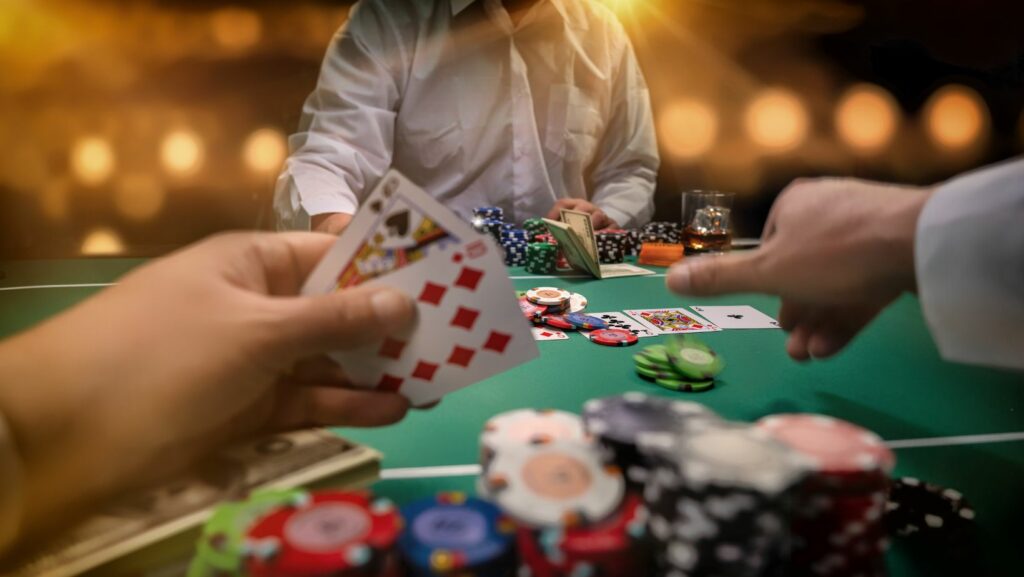The nature of gambling—whether it hinges on luck or skill—varies widely depending on the type of game.
Take, for instance, games like slot machines, roulette, and lotteries; these are primarily games of chance. The results are entirely random, and no amount of strategy can influence the roll of the dice, the spin of the wheel, or the draw of the cards. For those seeking higher stakes and potentially bigger wins, exploring High Limit Online Slots can add an extra layer of excitement to their gaming experience.
On the flip side, games like poker, blackjack, and sports betting require a good deal of skill. The decisions you make, the strategies you employ, and your experience can significantly influence the game’s outcome.
It’s crucial to note, though, that no matter the game, the house always has an advantage. Every game carries risks, and responsible gambling is essential.
Understanding Luck and Skill Through Scenarios
Let’s examine three different scenarios to see if you can tell which involve skill and which rely on luck:
Scenario 1: At the World Series of Poker finals, Player A pushes all his chips into the center with a straight. Player B contemplates his next move with a flush draw and two more community cards to come. He calculates his odds of winning the hand at 4/1, but the potential payout is 8/1. Should he take the risk based on the odds, or should he fold and wait for a better opportunity?
Scenario 2: During the final seconds of a World Cup qualifying match, the home team needs a goal to advance. In a last-ditch effort, a forward kicks the ball toward the goal. It bounces off the post, then off a defender, and goes in! The team erupts in celebration of their miraculous win.
Scenario 3: A visitor at a Las Vegas casino bets on number 36 at the roulette table. He closes his eyes, throws his chips, and miraculously, the ball lands on 36. He collects his winnings and leaves with a hefty sum.
These examples show that while some games depend on chance, others can be swayed by skill and strategic thinking.
Poker: A Test of Skill
Poker is often at the center of debates about gambling. Is it a game of chance, or does skill play a more substantial role? Consider this: studies show that professional poker players can turn what seems like a game of luck into one of skill through strategic play and experience. In fact, a study noted that top players had a return on investment significantly higher than less skilled players at major poker tournaments.
Casino Favorites: A Haven for Luck
Games like roulette and slots are designed to favor the house significantly. While you might win in the short term, playing these games long enough will likely lead to losses.

Casinos strategically fill their floors with these games because they are the most profitable.
The Gambler’s Fallacy
A common misconception in gambling is the gambler’s fallacy—the belief that if something happens frequently over a period, it’s less likely to occur in the future. This fallacy is particularly pronounced in games like roulette, where past results don’t influence future outcomes.
Las Vegas thrives on the gambler’s fallacy. Many players believe they can predict patterns in games of pure chance, but this misconception is what keeps the casinos profitable.
Effective Gambling Systems
While no system can guarantee victory against chance, effective bankroll management and sound decision-making can help gamblers minimize losses and optimize wins. Avoiding strategies that promise unrealistic returns is crucial to gambling responsibly.
Even the most skilled sports bettors stick to simpler bets and avoid complicated accumulators that seem enticing to casual gamblers.

Understanding the house edge and the actual odds can make a significant difference in how you bet.
Is Luck Avoidable?
While you cannot escape chance in gambling, making informed decisions based on understanding the games and managing your funds wisely can tilt the odds in your favor. Ultimately, whether you choose to gamble depends on your willingness to take on the inherent risks in hopes of potential rewards. Remember, gambling should always be approached with caution and responsibility.


More Stories
The Technology Behind Virtual Receptionist Services
Crypto And Cards: The Fusion Of Blockchain And Betting
Tool Overload: Why Less Software Sometimes Means More Progress